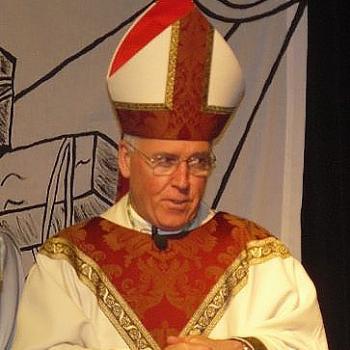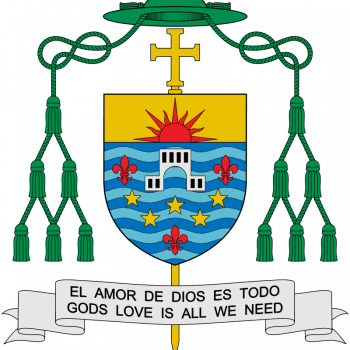Well, he was born in Queens, anyway.
New Hampshire’s 300,000 Roman Catholics have a new leader.
The Vatican on Monday named the Rev. Peter Anthony Libasci to succeed Bishop John McCormack as bishop of the Diocese of Manchester.
The 59-year-old Libasci is New York City native ordained in 1978 who most recently served as auxiliary bishop of the Diocese of Rockville Center in New York.
He is scheduled to be introduced at a news conference at St. Joseph Cathedral in Manchester on Monday and will be officially installed on Dec. 8.
McCormack has served as bishop in New Hampshire since 1998. Before that he was a top aide to Cardinal Bernard Law in the Archdiocese of Boston. He announced in August that he would step down because he had reached the mandatory retirement age of 75.
His official bio notes, intriguingly, that he is bi-ritual, and celebrates the Divine Liturgy in the Byzantine Ruthenian Catholic Church. Also, he grew up down the road from me, at St. Margaret’s in Middle Village.
Rocco has more, ‘natch:
Born in Queens and an alumnus of Indiana’s St Meinrad Seminary — whose Benedictine monks notably have another considerable base in New Hampshire — Libasci was ordained a priest for the 1.4 million-member Long Island church in 1978.
Prior to his appointment as an auxiliary to Bishop William Murphy in 2007, the Granite State nominee spent his entire priesthood in pastoral work, earning an added advanced degree in catechesis early on.
Described as “gentle” and “holy” by his collaborators, the high-stakes assignment will require all the soothing Libasci can muster as he takes the place of a prelate whose 13-year tenure has both required thankless calls and garnered searing criticism.
To an almost unparalleled degree for an American prelate, McCormack’s stewardship of the New Hamshire church was saddled with the fallout of the clergy sex-abuse scandals, a reality that owed itself above all to his history as an auxiliary bishop and clergy-personnel chief to Cardinal Bernard Law in Boston. Adding to the load, in the wake of the crisis’ national eruption in 2002, an investigation of Manchester’s handling of earlier cases by the New Hampshire attorney general forced the diocese into a legal agreement where, in exchange for periodic audits of its files by law enforcement, the state declined to press criminal charges against the Chancery or any “individual agents” suspected of engaging in a cover-up.











